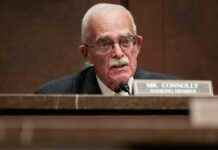Vladimir Putin, the President of Russia, recently expressed his support for a U.S.-led ceasefire plan aimed at resolving the ongoing conflict in Ukraine. While Putin acknowledged the merit of the ceasefire proposal, he emphasized the need for further discussions to ensure a lasting peace. During a press conference in Moscow, Putin highlighted the importance of addressing key issues and engaging in dialogue with American counterparts, including a potential conversation with President Trump to explore the path towards conflict resolution.
Putin’s Perspective on Ceasefire
Putin’s stance on the ceasefire plan underscored the complexities involved in reaching a comprehensive agreement. He stressed the necessity of addressing underlying causes of the crisis to prevent future conflicts, emphasizing the need for a ceasefire that goes beyond a mere temporary cessation of hostilities. Putin’s cautious approach reflected a desire for a sustainable resolution that considers the long-term implications of the proposed ceasefire.
During the press briefing, Putin raised concerns about the practical implementation of the ceasefire, including potential issues such as arms supply and monitoring violations. These considerations highlighted the intricacies involved in negotiating a successful ceasefire agreement that addresses the interests of all parties involved. By engaging in open dialogue and expressing his support for the ceasefire idea, Putin demonstrated a willingness to work towards a peaceful resolution to the conflict in Ukraine.
International Response and Diplomatic Efforts
The response to the ceasefire plan extended beyond Russia, with the U.S. delegation led by President Trump’s special envoy, Steve Witkoff, engaging in talks in Moscow to advance discussions on the proposed agreement. The diplomatic efforts underscored the importance of multilateral cooperation in addressing complex geopolitical challenges and seeking peaceful solutions to conflict.
As the U.S. lifted its pause on intelligence sharing and military aid with Ukraine following its endorsement of the ceasefire plan, the international community signaled its commitment to supporting efforts towards de-escalation and conflict resolution. The draft deal outlined provisions for ceasing military activities, exchanging prisoners of war, releasing civilian detainees, and addressing humanitarian concerns, reflecting a comprehensive approach to addressing the crisis in Ukraine.
Analysts noted the significance of the ceasefire plan in providing a temporary respite for the Ukrainian military and creating space for dialogue and negotiation. The gradual progress towards a ceasefire agreement highlighted the importance of sustained diplomatic engagement and dialogue to address the root causes of the conflict and pave the way for a lasting peace in the region.
In conclusion, Putin’s response to the ceasefire plan, along with international diplomatic efforts and negotiations, reflected a collective commitment to seeking a peaceful resolution to the conflict in Ukraine. By engaging in dialogue, addressing key concerns, and emphasizing the need for a comprehensive ceasefire agreement, world leaders demonstrated their dedication to promoting stability and security in the region. As discussions continue and efforts towards conflict resolution progress, the hope for enduring peace remains a driving force in shaping the future of Ukraine and its relations with neighboring countries.

























